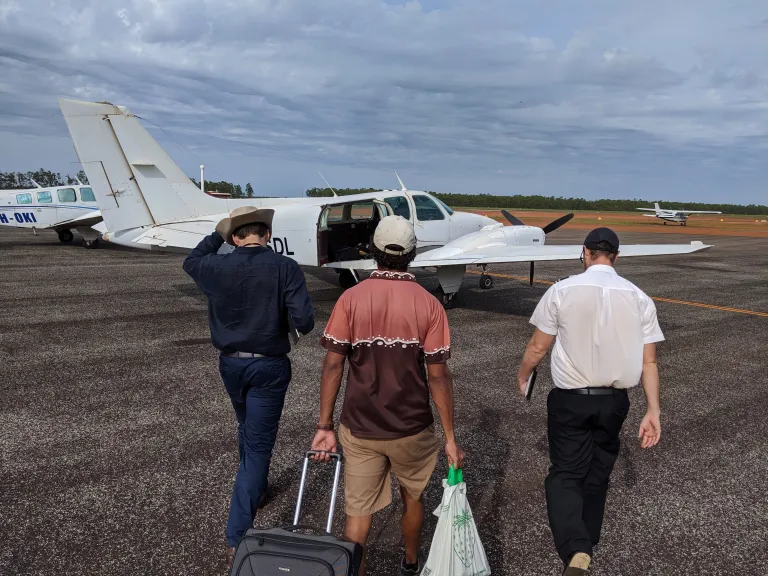Student stories
Power(ful) play: Why Harita is studying Indigenous languages
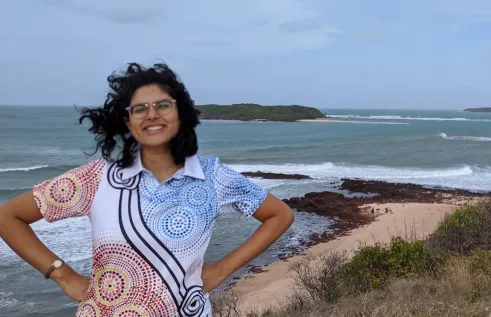
Criminal defence lawyer Harita Sridhar is passionate about helping and engaging with Indigenous communities. She started her career with a law degree and is now working at the Northern Australian Aboriginal Justice Agency (NAAJA). She’s going a step further with a postgraduate certificate in Indigenous Knowledges at CDU.
“My clients often feel there’s a huge power imbalance between me and them,” says Harita, whose postgraduate course is teaching her about Indigenous languages, specifically Yolŋu Matha.
“Being able to converse with my clients in a light-hearted manner is changing that perceived power imbalance and providing some laughs along the way.”
“When I make a few language mistakes, it makes people smile. They’re more receptive to me because they can teach me something too and hopefully feel more respected by me in the process.”
Making an impact at work
Harita chose to study an Indigenous languages course at CDU because she wanted a greater understanding of and empathy for Indigenous culture and communities.
“I’m learning how, through my work, I can better support my clients and their communities,” she says.
She’s also building long term trusting relationships and striving to bridge any perceived inequality gaps. Learning the language has played a big role in that.
A different pace
When Harita started the course, she felt confused by what she thought was a very slow pace of learning. However, she quickly realised the purpose and benefit to it.
The lecturers were teaching from a Yolŋu perspective, rather than using western ways of teaching and speeds.
"They teach the Aboriginal language from Yolŋu frameworks of teaching. Once I figured that out, it felt great to be learning in a completely different way," she says.
In the know
Having the two same lecturers throughout her Indigenous studies course has been a big plus for Harita. Their experience, dedication and advice has proven invaluable.
The lecturers have guided me on appropriate ways to interact with clients and answered questions about why a client may have reacted in a certain way. Having the Yolŋu perspective has been amazing.
“It’s also made me think about what options there are for myself into the future where I can continue to implement these language and culture learnings.”
Flexible, online options
“Because of COVID-19, we had to do part of the course online,” says Harita. “There were students from other parts of Australia, but it wasn’t problematic at all.”
The flexibility of the course and the lecturers has also been “amazing”, particularly with Harita’s unpredictable work schedule. The chance to grab a coffee between work and study is always good.
“My advice would be, if you're thinking about studying, just do it,” says Harita.
If you can’t fully commit, there are shorter introductory courses available. But once you do that, I guarantee you’ll want to do more.
With her study and in-depth knowledge, it’s clear Harita will continue to thrive. Her work in and with Indigenous communities will speak for itself, as soon will she.
Grow your knowledge of Indigenous cultures, language and community with a course in Indigenous Knowledges at CDU. Find out more.
Related Articles
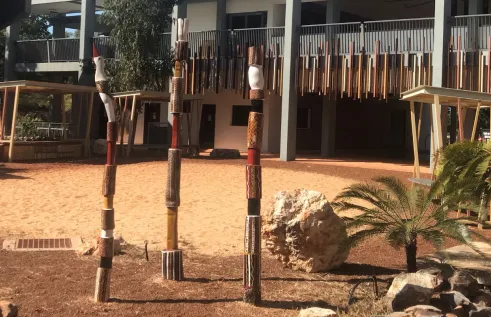
International scholarship for Elinor’s Indigenous policy study dream
Elinor’s focus on her studies recently paid off when was awarded a Vice-Chancellor’s International High Achiever Scholarship to study a Master of Public Policy at Charles Darwin University in Darwin, a degree that she’ll use to address Indigenous disadvantage.
Read more about International scholarship for Elinor’s Indigenous policy study dream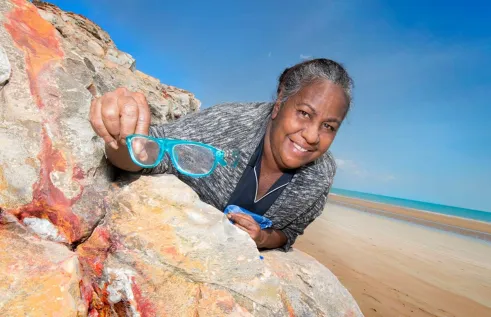
Finding the elusive little people
Tales of fairies, elves and “little people” are common folklore around the world, but despite their ubiquity they are rarely seen. Their names differ, but beliefs passed across generations are rich with stories that feature these elusive beings.
Read more about Finding the elusive little people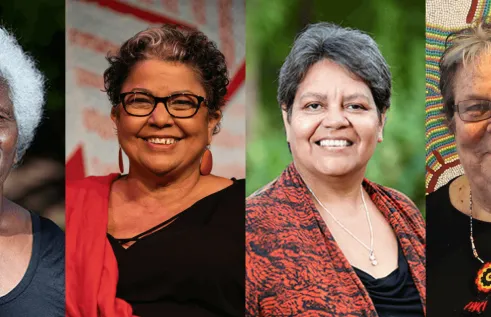
Meet CDU's Indigenous female Trailblazers
From its very foundations, Indigenous women have contributed to making this University what it is today – they have inspired, driven change and shown pathways for staff and students, and we proudly acknowledge them all. Read the inspiring stories of eight such amazing Aboriginal and Torres Strait Islander women who walked ahead, but always together.
Read more about Meet CDU's Indigenous female Trailblazers
